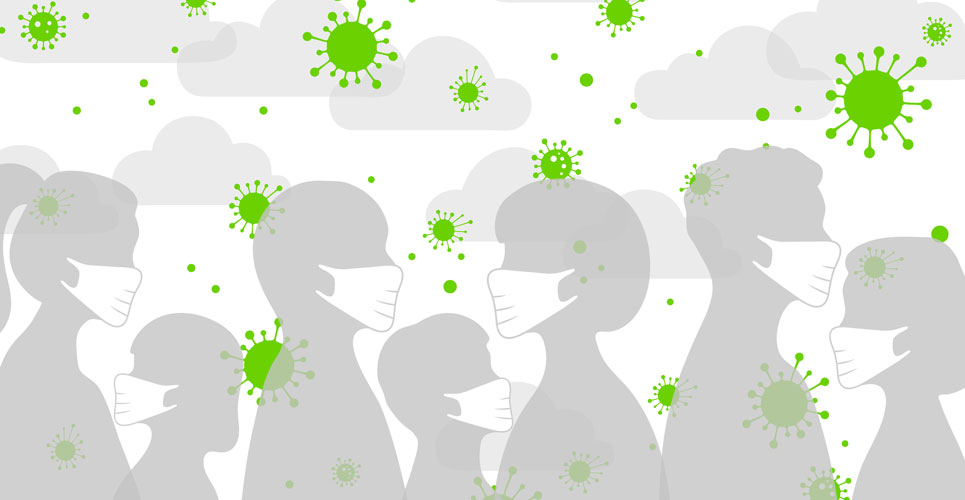It is well established that COVID-19 vaccination reduces the risk of problems if an individual becomes infected but uncertainty remains over whether vaccinated, infected individuals can still pass the virus on to others.
With clinical data clearly showing that the available vaccines induce an acceptable level of antibody titre, a remaining question is whether once vaccinated, an individual does not transmit the virus to others and this specific issue was not addressed in either the clinical trials or subsequent post-marketing studies. Knowledge of the extent of on-ward transmission is vital for pandemic planning and helps to inform on the effectiveness of the current mass vaccination programme. In trying to further assess the extent of on-ward transmission, a team from Public Health Scotland has examined the ensuing risk of infection and hospitalisation among non-vaccinated household members of healthcare workers who have themselves been vaccinated. The researchers identified healthcare workers and non-healthcare family members with whom who they shared a house and linked this data to multiple databases such as the COVID-19 virology testing service, general hospitalisation data and the national register for deaths. The pre-specified primary outcome was a positive PCR test for COVID-19 between 8 December 2020 and 3March 2021 in household members as this covers the time-frame over which healthcare workers would have received one, if not both of their vaccinations. The researchers also considered death or hospitalisation due to COVID-19 as a secondary outcome. The outcomes were reported as hazard ratios (HRs) and these were adjusted for socio-demographics and comorbidities and these were assessed in the period 14 days after the first vaccination dose.
Findings
The study included 194,362 non-vaccinated household members with a mean age of 31.1 years (61.7% male) and 144,525 healthcare workers (mean age = 44.4 years, 23.8% male). During the specified period of time there were a total of 3,123 documented COVID-19 cases and 175 hospitalisations in household members of vaccinated healthcare workers. From day 14 after vaccination of the healthcare worker, the rate of documented COVID-19 infections among cohabiting household members was 9.4 versus 5.93 (vaccinated vs unvaccinated healthcare workers), representing a 30% reduced risk of infection (HR = 0.70, 95% CI 0.63 – 0.78). In addition, the observed rate of subsequent hospitalisations was also lower (HR = 0.77) but this difference was not significant. However, 14 days after the second vaccination dose, the risk of infection was reduced even further (HR = 0.46) as was the risk of hospitalisation (HR = 0.68) and both of these risks were statistically significant. In discussing their findings, the authors noted that the reduced risk of transmission was potentially biologically plausible because vaccination reduced carriage of COVID-19 and thus the risk of onward transmission.

They concluded that the findings are an important finding in terms of mass vaccination and societal control measures.
Citation
Shah ASV et al. Effect of vaccination on transmission of COVID-19: an observational study in healthcare workers and their households. 2021 MedRxiv https://github.com/ChronicDiseaseEpi/hcw/blob/master/README.md

